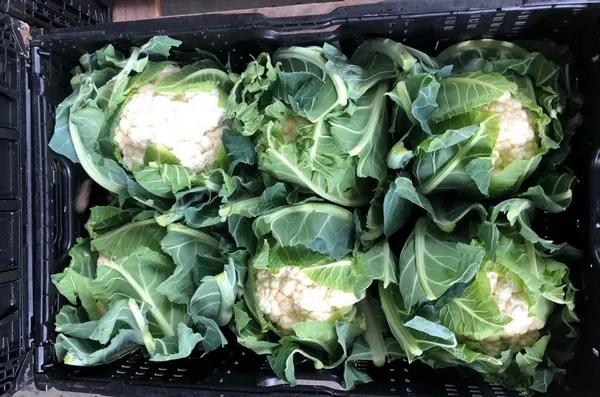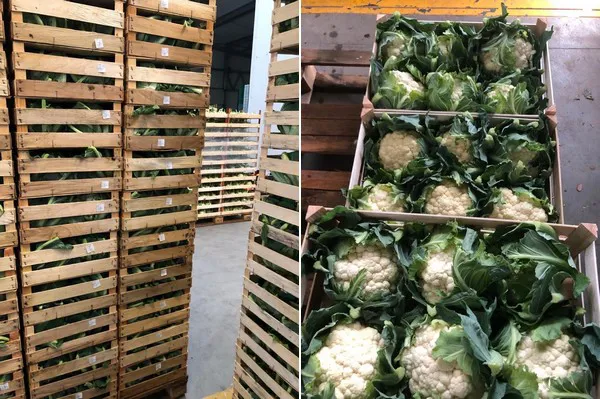The Polish cauliflower season is nearing its end. The season was better than expected. There were worries that the pandemic could cause demand to be low, but looking back the export volumes were similar to last year. One exporter will now wrap up the cauliflower season and prepare for the winter vegetable season.

According to Kornelia Lewikowska, sales manager for Polish vegetable exporter Green Best, the cauliflower season in Poland has been a successful one: “The cauliflower season this year was successful for us. Prices, supply and demand were on a satisfactory level. Despite our concerns about the COVID-19 epidemic, demand proved to be high, just as it has been every year. The quantities exported were similar to last year's. The weather was favorable for us and cauliflowers were available for a long time. This year we sold the biggest quantities of cauliflower to the Czech Republic.”
Now that the cauliflower season is almost at its end, the time for winter vegetables will come. Lewikowska expects demand for the winter vegetables to be high. “As in every year, after the cauliflower season is over we will focus on selling typical winter vegetables, like cabbage and root vegetables. We’ll also have apples. The winter season can be difficult with the pandemic in mind, but on the other hand a lot of people work remotely from home. They avoid going out, so they have more time to cook. Therefore, the sale of vegetables and fruits is higher, especially as consumers try to eat healthy.”

The coronavirus is still spreading in Poland and if numbers have not gone down by the end of the month, the country could go into a full lockdown. Lewikowska hopes that it doesn’t come to that: “From what I observe, I hope that the full lockdown in Poland will not happen. However, even if it does the fresh food industry will always be essential to people. It's hard to predict the challenges caused by the coronavirus, because this is the first time we are in such a situation. For example, during the summer season, farmers did not plant as much capsicum as usual and that meant we lacked a certain amount. When asking farmers why they planted less peppers than usual, they replied that they feared demand would be lower, because of the epidemic. The opposite happened, as it turned out that the demand was very high. It’s a clear example of how difficult it is to predict where trade will go during this difficult time.”
For more information:
Kornelia Lewikowska
Green Best
Mob: +48 737 602 848
Email: kornelia.lewikowska@greenbest.pl
www.greenbest.pl
